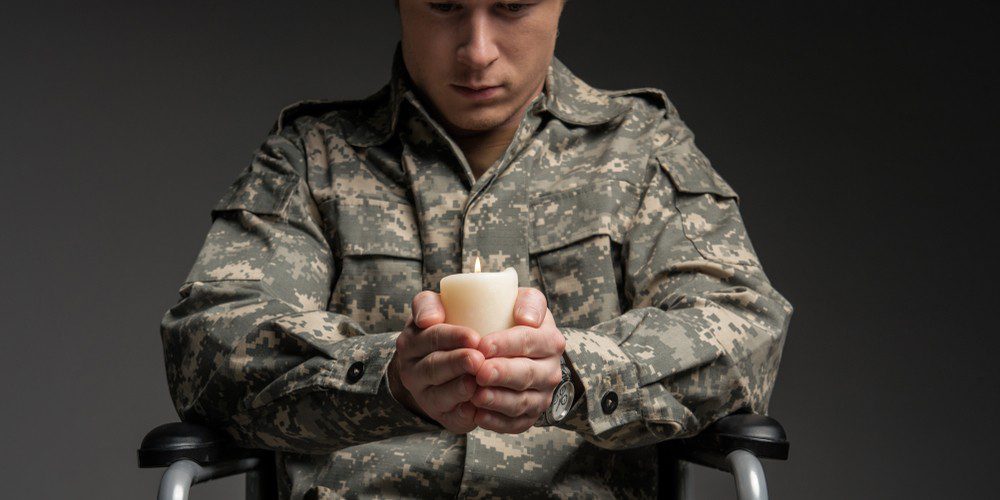The U.S Department of Veterans Affairs (VA) estimates that 1 in 4 female veterans and 1 in 100 male veterans have experienced military sexual trauma (MST). MST applies to service members who have experienced sexual harassment or assault at any point during their military career. Unfortunately, many veterans and active service personnel do not disclose their traumatic experiences, so the numbers provided by the VA may be significantly lower than the reality.
In some cases, military personnel may fear persecution, while in others, they may worry about breaking the chain of command. Sadly, other service members may consider their experience part military culture. However, military sexual trauma is very serious and is considered a form of PTSD. Because of this, military members and their loved ones should understand the consequences and what steps they can take to seek help.
What Is Military Sexual Trauma?
Military sexual trauma is a traumatic event, including sexual assault or sexual harassment, that occurs while serving in the military. It can happen at any time, including during training, deployment, active duty, or discharge. Examples of MST include:
- Repeated unwanted sexual advances
- Inappropriate sexual jokes or comments
- Sexual activity that occurs without consent
- Coerced sexual encounters including inappropriate or unwanted touching
- Rape
- Offering promotions, rewards, or things of value in exchange for sexual favors
- Other forms of military sexual assault
This list isn’t exhaustive. There are many other types of behaviors and actions that are considered military sexual trauma.
Ready to start your journey to recovery?
How Does MST Affect Veterans?

Similar to other forms of trauma, MST can manifest in a variety of ways. Note MST is NOT a diagnosis or condition itself; instead, it refers to an event. Therefore, many veterans react in different ways after experiencing MST. For some, problems may not arise until months or years after. For others, MST can greatly impact their daily lives, including their work, relationships, and health.
Factors that may determine your reaction include:
- Do you have a prior history of trauma?
- When the trauma occurred, what type of response did those around you have? Did you have any support or assistance?
- How often did the incident occur?
Survivors of MST may face:
- Intense negative emotions: depression, anxiety, sudden emotional response to triggers, irritability, and irrational anger.
- Numbness: feeling empty or “flat” and having difficulty feeling positive emotions.
- Sleep problems: insomnia, trouble staying asleep, nightmares, or excessive sleep.
- Inability to focus: trouble with concentration, memory or attention. You may find your mind wandering to other things or back to your trauma.
- Self-medicating: drinking excessively or using drugs to cope with memories and negative feelings. Some survivors may use alcohol or other substance to fall asleep.
- Feeling on Edge: feeling jumpy or unsafe, avoiding triggers that are reminders of the trauma, and having an inability to trust others.
- Relationship problems: feeling disconnected from friends, family, or romantic partners, staying in abusive relationships or having difficulties with authority figures.
- Health issues: physical health problems, including sexual dysfunction, weight gain, eating disorders, or chronic pain.
What Makes Military Sexual Trauma So Difficult For Survivors?
All forms of trauma are difficult. But for many survivors, MST has several unique factors including:
- Needing to live and/or work with the perpetrator. In some cases, even relying on him/her for healthcare, food, or protection.
- Worrying about damaging the spirit of the squad if the perpetrator is from the same unit.
- Fear of appearing weak or vulnerable and losing the respect of fellow soldiers.
- Concern that it may end your military career, chances for promotion, or other types of advancement.
As a result, MST can put service members in difficult situations. For example, they may find themselves unable to report their perpetrator or even reach out for help. This makes it harder to recover from the trauma.
What Can You Do To Seek Help for Military Sexual Trauma?
If you are having problems as a result of MST, speak with a mental health professional. Even if you do not currently have issues, it’s a good idea to talk to somebody. You may not even be aware of how MST has affected your life. In addition to seeking professional help, you can make lifestyle changes that have a positive impact on your health including:
- Minimize the use of alcohol.
- Focus on a healthy diet and exercise.
- Aim to get enough sleep.
- Talk to your doctor about any health conditions.
- Take prescription or OTC drugs only as directed.
- Avoid using illegal drugs.
- Recognize your triggers and keep a record of them to discuss with your counselor and support network.
- Avoid risky behaviors, such as reckless driving, unsafe sex, and gambling.
- Use your energy to pick up a new hobby or recreational activity as a healthy outlet.
- Reach out to friends and family and keep open lines of communication to help you feel less isolated.
- Practice techniques designed for relaxation, such as meditation and prayer.
If you are a friend or family member of who’s experienced MST, try to recognize the warning signs and extend your support. Knowing you are there for them is essential.
How Can I Connect With Professional Care for Military Sexual Trauma?

Although MST can be very difficult to live with, many treatment options are available that can greatly improve your quality of life. Treatment involves not only addressing MST but also other negative behaviors that may affect your health and safety. Through various counseling sessions, you can develop new ways of thinking, positive behaviors, and healthy steps to cope.
Specific treatment for MST varies based upon your official diagnosis. In some cases, clinicians may advise you to take medicine in addition to counseling sessions. During therapy, you will create strategies for handling stressful memories and when you’re ready, discuss these experiences in depth. For more information, reach out to VA services.
Meeting the Needs of Military Sexual Trauma Survivors
MST coordinators know that survivors may have unique concerns about the trauma they’ve endured since it’s so intertwined with their military service. For this reason, clinicians offer a variety of different treatment settings. In some cases, veterans may feel more comfortable in mixed-gender settings, while others may require a program gender-specific program for men and women. Moreover, to speak with an MST specialist, you do not need to report an incident. Your treatment is solely based on your needs as a survivor.
There’s nothing more honorable than serving in the US military. However, military sexual trauma is unfortunately too common a problem. The culture of silence around it may prevent people from seeking the care they need. Nonetheless, you do not need to live in pain. If you’ve experienced MST, contact a specialist immediately to overcome the trauma and regain your mental and emotional wellbeing.
We Can Help You
Heroes’ Mile, a Substance Abuse, Post Traumatic Stress (PTS) and Military Sexual Trauma (MST) program designed for Military Service Veterans experiencing problems with addiction and other psychological challenges related to their military service, is located in DeLand, FL.
If you are a Veteran or would like to refer a Veteran to our program, please call an Admissions Specialist today at 888-838-6692. Or, fill out a contact form by clicking here.
We’ve got your Six!

